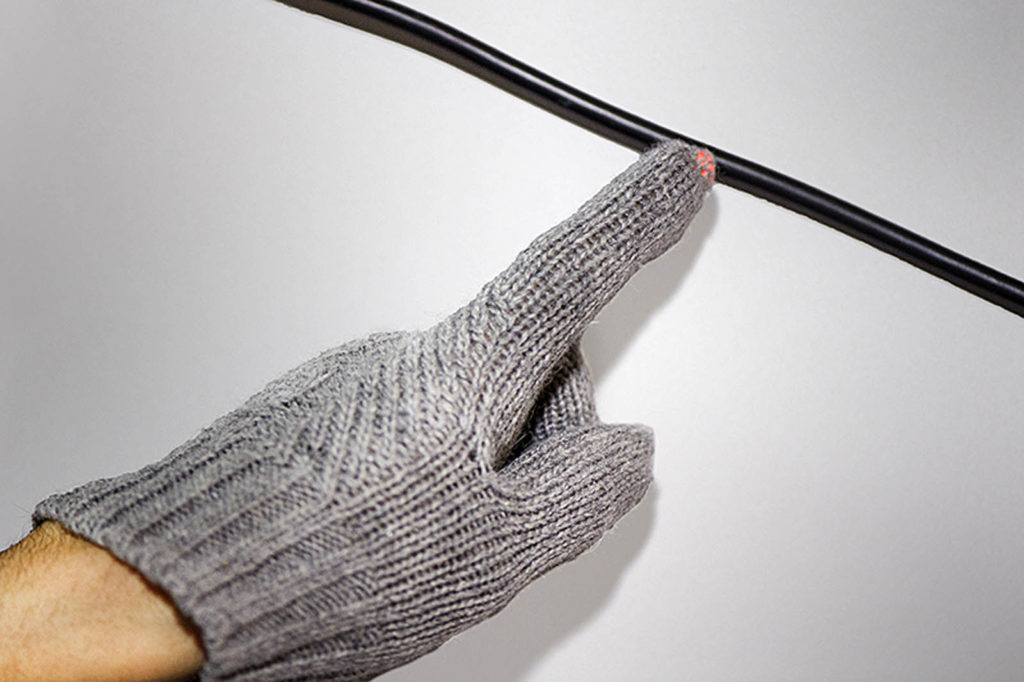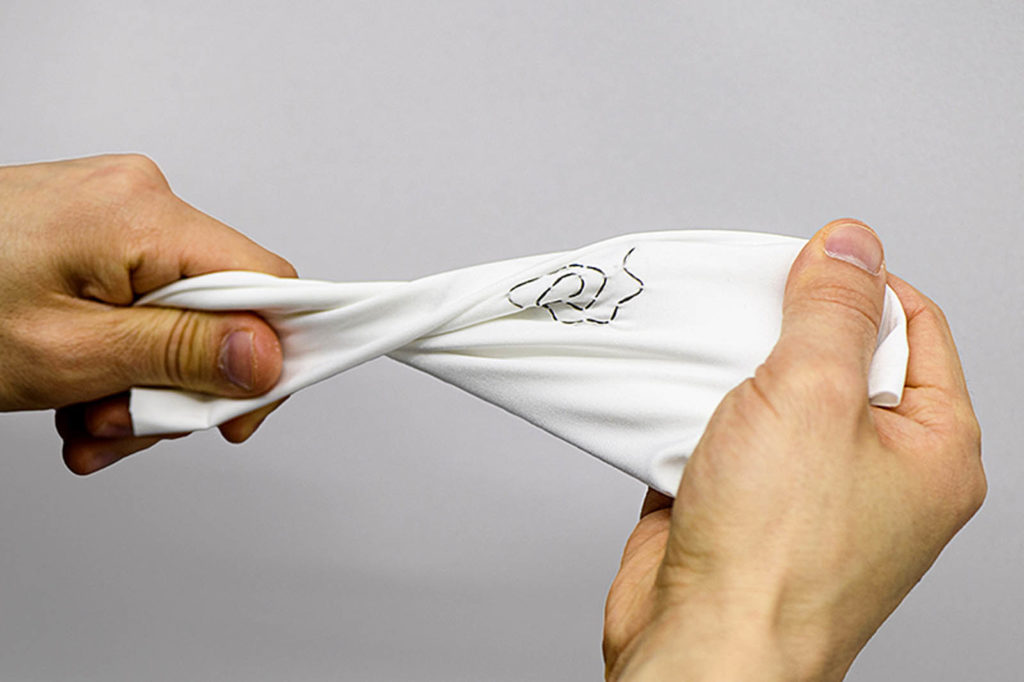
Purdue University engineers have developed a new spray and sewing method that makes it possible to transform any conventional fabric items into battery-free wearables that can be cleaned in a washing machine. The Purdue News Service reports that these smart clothes are powered wirelessly through a flexible, silk-based coil sewn on the textile.
“By spray-coating smart clothes with highly hydrophobic molecules, we are able to render them repellent to water, oil and mud,” says Ramses Martinez, an assistant professor in Purdue’s School of Industrial Engineering and in the Weldon School of Biomedical Engineering in Purdue’s College of Engineering. “These smart clothes are almost impossible to stain and can be used underwater and washed in conventional washing machines without damaging the electronic components sewn on their surface.”
The rigidity of typical waterproof garments and their reduced breathability make them feel uncomfortable after being worn for a few hours, but with an ultrathin coating, “Our smart clothes remain as flexible, stretchable and breathable as conventional cotton T-shirts,” Martinez says.

Because the technology harvests energy from Wi-Fi or radio waves in the environment, the clothes are capable of powering the circuitry sewn on the textiles without using a battery.
One application that has been tested is a battery-free glove that illuminates its fingertips every time the user is near a live cable, warning the wearer of the possibility of an electric shock. Another is a miniaturized cardiac monitoring system sewn on a washable sweatband that can monitor the health of the wearer. This technology can be fabricated in conventional, large-scale sewing facilities, which are expected to accelerate the development and commercialization of future smart clothes.
“I envision smart clothes will be able to transmit information about the posture and motion of the wearer to mobile apps, allowing machines to understand human intent without the need of other interfaces, expanding the way we communicate, interact with devices and play video games,” Martinez says.
Martinez and his team have worked with the Purdue Research Foundation Office of Technology Commercialization to protect the intellectual property, and the innovations are patent pending. Purdue is located in West Lafayette, Ind.
A report about the technology has been published in Nano Energy.
 TEXTILES.ORG
TEXTILES.ORG


